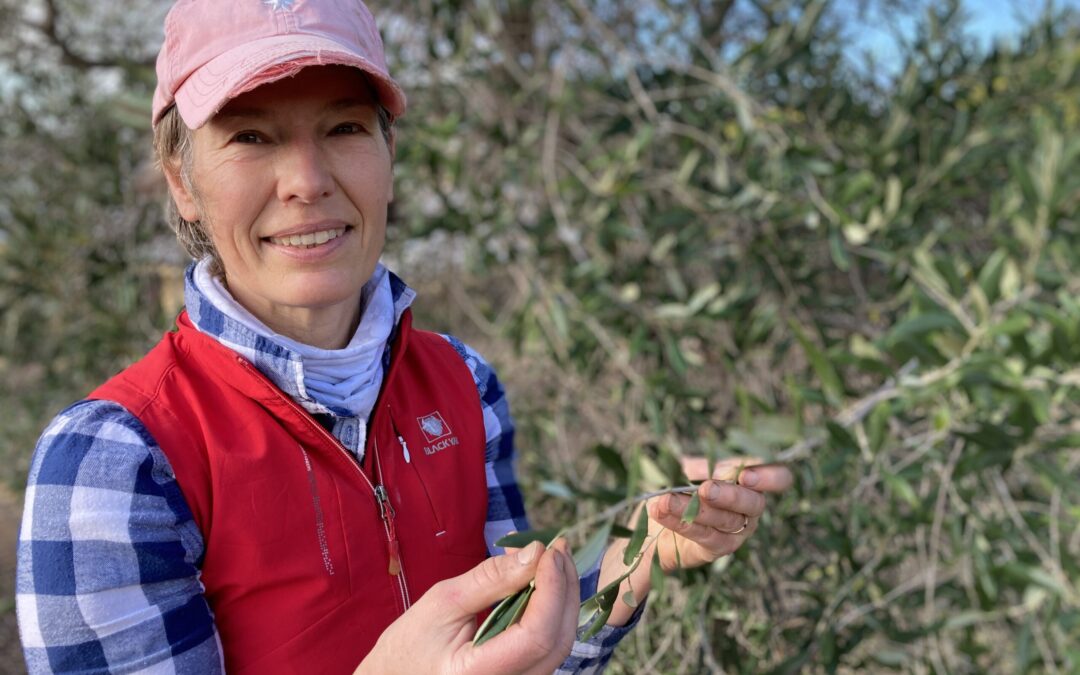Olives are a popular garden plant grown for their fruit and draught tolerance, but Nature Conservation Margaret River Region is warning the Mediterranean species is becoming a problem weed in our bush.
Local birdlife has adapted to feed on olives and the seed is easily spread to nearby reserves and national parks, where the trees can quickly establish and thrive in our climate – reproducing and outcompeting native trees that belong here. They are also oil-rich, making them highly flammable and a major bushfire hazard.
“We know that olives are a treasured garden plant for many people and an important tree crop in the Margaret River region,” said Nature Conservation’s Biodiversity Officer Mike Griffiths. “And of course, people love olives. But our message is that we need to be aware that these trees are becoming a real problem in the bush, forming dense monocultures and degrading ecosystems.”
For landholders growing olives as ornamental trees – particularly on properties with bushland nearby – Mr Griffiths recommended replacing them with native species that will benefit the ecosystem. For those growing olives for harvest, he recommended keeping trees pruned and compact, picking fruit regularly when ripe, and netting trees to reduce birds’ access to the fruit.
In South Australia, feral olives have become such a problem they are now a declared weed, with research showing infested areas have lost 50 per cent of native plant species and 80 per cent of native canopy cover, according to the SA Department of Water and Environment.
In WA, the Urban Bushland Council of WA says olives are now a “significant problem in bushland” and “despite the warnings, the olive is still widely sold as a drought tolerant small tree useful in gardens”. That was echoed by renowned Margaret River bush regenerator and weed management contractor Rick Ensley, who described feral olives as a “real menace” and said he’d pulled out thousands of seedlings. “They are extremely widespread and do particularly well around rivers and creeks,” he said. “Do not plant an olive tree unless you plan to net it and harvest the fruit.”
Michael Kellys from Della Fay Wines and Olive Oil grows olives commercially at his 100-acre property with 2000 olive trees on Caves Rd at Quininnup, and he says removing seedlings from bushland on the block is a constant job. He said he was seeing crows, galahs and parrots feeding on olives in greater numbers as their natural food sources declined or came under pressure. “We cannot walk through the bush without seeing olives. And you have to get onto the seedlings early, because once they get above knee-high they become difficult to pull out,” he said. “Olives are survivors. They could well become a big problem in our region.”
Meanwhile, home gardeners Gita and Norman Sonnenberg removed more than a dozen large olive trees from their property on Kevill Rd last year. “We’re close to bushland and the Margaret River, so the last thing we want is to be responsible for the spread of woody weeds from our place,” says Gita. “Even though we removed our olive trees, there are seedlings popping up everywhere in the bush over the fence because the seeds last a long time. It’s obvious to us how easily they spread. We’re glad our trees are gone because that’s one less weed to worry about.”
As part of a two-year campaign, Nature Conservation is putting the spotlight on the worst “woody weed” trees in the region and helping people identify and remove them. If olives are spreading on your property, seedlings up to approximately 50 cm can usually be hand-pulled while larger trees should be cut and treated with herbicide to ensure they don’t re-shoot.
To learn more, watch a comprehensive olive ID and control video by following the links at www.natureconservation.org.au or grab a free woody weed booklet from Nature Conservation’s office.
Mr Griffiths added: “Even one woody weed tree can spread seed over a large area in just a few years. Consider replacing your woody weeds with local natives, which boost our bushland and are beneficial for wildlife.”
The Woody Weeds Campaign is funded by the WA Government’s State Natural Resource Management Program.

